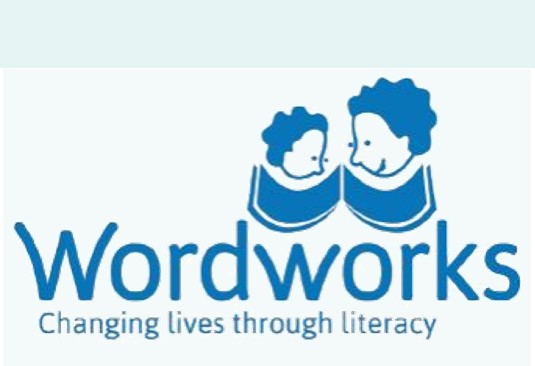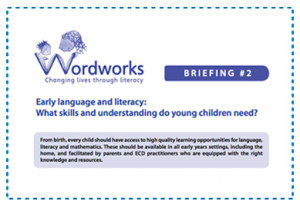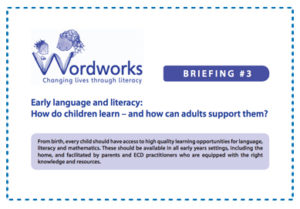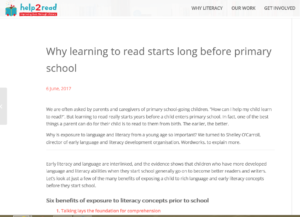Narrowing the literacy gap: Strengthening language and literacy development between birth and six years for children in South Africa | 2012
This report discusses why language development in a child’s first years is so important to later reading and writing skills.
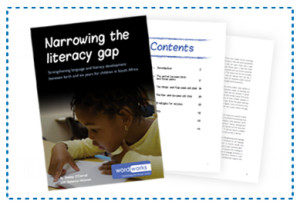
Narrowing the literacy gap: Making a case for the importance of early language and literacy development in South Africa | 2012
This learning brief provides a useful summary of our Narrowing the literacy gap report.
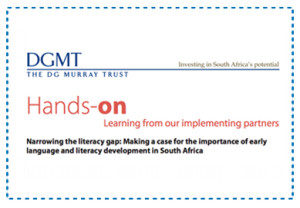
Early language, literacy and mathematics learning: Why does it matter and who benefits?
This briefing looks at why the period between birth and five years is such a crucial formative time for a child, setting the trajectory for their school years and beyond. It explains how the benefits of investing in this period are deep and wide, providing the foundations not only for individual flourishing, but also for a successful education system, a stronger society, and more efficient public spending. It also discusses how high quality opportunities for language, literacy and maths learning have been shown to be an essential element of any successful early years programme, and considers how and why language is at the heart of all learning.
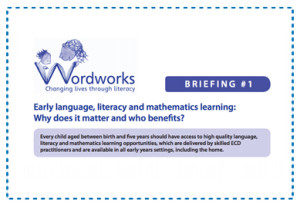
Early language and literacy: What skills and understanding do young children need?
This briefing looks at the skills and understanding that young children need in order to learn to read and write successfully. Improving knowledge of what these early literacy competencies are and how they can be nurtured in the home and other ECD settings must be a key part of any strategy to raise literacy rates in South Africa.
Early language and literacy: How do children learn – and how can adults support them?
The third in our series of policy briefings looks at the ‘how to’ of language and literacy learning in the pre-school years. As well as considering the question of how children learn, this briefing looks at the vital role of adults, the specific activities that support early literacy, and the key features of an effective learning environment.
An exploratory study of early letter-sound knowledge in a low socio-economic context in South Africa | 2011
Shelley O’Carroll
This article explores one aspect of early literacy development in a low socio-economic context in South Africa through a study of letter-sound knowledge with Grade R and Grade One children. The results suggest an urgent need for quality Grade R teacher training programmes with a specific focus on emergent literacy.
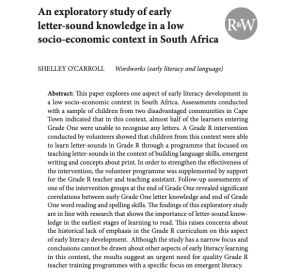
Why learning to read starts long before primary school | 2017
Our founder and ex-Director, Dr Shelley O’Carroll, spoke to help2read about building literacy skills with children, including giving practical activities, before they start primary school.
